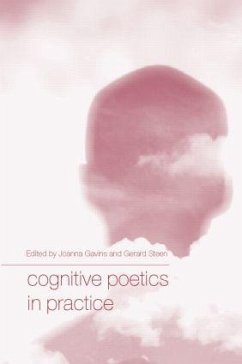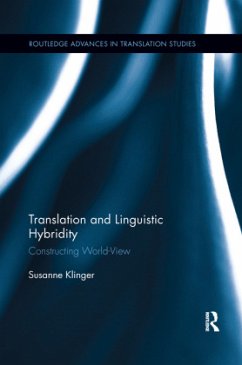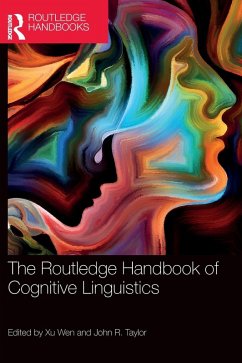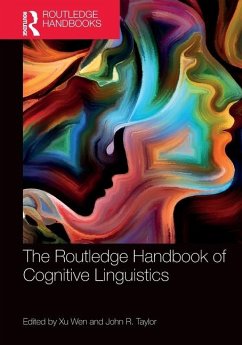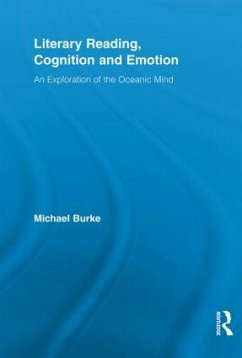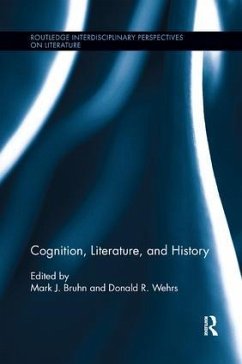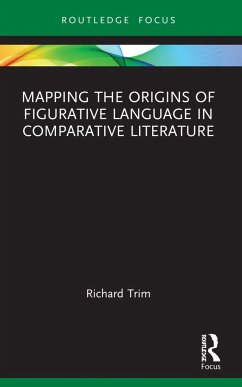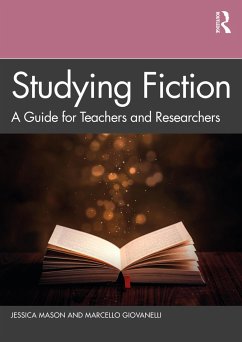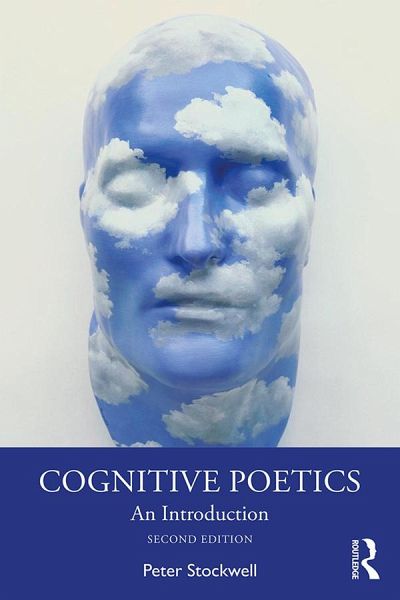
Cognitive Poetics
An Introduction
Versandkostenfrei!
Versandfertig in 6-10 Tagen
43,99 €
inkl. MwSt.
Weitere Ausgaben:

PAYBACK Punkte
22 °P sammeln!
A pioneering text in its first edition, this revised publication of Cognitive Poetics offers a rigorous and principled approach to literary reading and analysis.The second edition of this seminal text features:- updated theory, frameworks, and examples throughout, including new explanations of literary meaning, the power of reading, literary force, and emotion;- extended examples of literary texts from Old English to contemporary literature, covering genres including religious, realist, romantic, science fictional, and surrealist texts, and encompassing poetry, prose, and drama;- new chapters ...
A pioneering text in its first edition, this revised publication of Cognitive Poetics offers a rigorous and principled approach to literary reading and analysis.
The second edition of this seminal text features:
- updated theory, frameworks, and examples throughout, including new explanations of literary meaning, the power of reading, literary force, and emotion;
- extended examples of literary texts from Old English to contemporary literature, covering genres including religious, realist, romantic, science fictional, and surrealist texts, and encompassing poetry, prose, and drama;
- new chapters on the mind-modelling of character, the building of text-worlds, the feeling of immersion and ambience, and the resonant power of emotion in literature;
- fully updated and accessible accounts of Cognitive Grammar, deictic shifts, prototypicality, conceptual framing, and metaphor in literary reading.
Encouraging the reader toadopt a fresh approach to understanding literature and literary analyses, each chapter introduces a different framework within cognitive poetics and relates it to a literary text. Accessibly written and reader-focused, the book invites further explorations either individually or within a classroom setting.
This thoroughly revised edition of Cognitive Poetics includes an expanded further reading section and updated explorations and discussion points, making it essential reading for students on literary theory and stylistics courses, as well as a fundamental tool for those studying critical theory, linguistics, and literary studies.
The second edition of this seminal text features:
- updated theory, frameworks, and examples throughout, including new explanations of literary meaning, the power of reading, literary force, and emotion;
- extended examples of literary texts from Old English to contemporary literature, covering genres including religious, realist, romantic, science fictional, and surrealist texts, and encompassing poetry, prose, and drama;
- new chapters on the mind-modelling of character, the building of text-worlds, the feeling of immersion and ambience, and the resonant power of emotion in literature;
- fully updated and accessible accounts of Cognitive Grammar, deictic shifts, prototypicality, conceptual framing, and metaphor in literary reading.
Encouraging the reader toadopt a fresh approach to understanding literature and literary analyses, each chapter introduces a different framework within cognitive poetics and relates it to a literary text. Accessibly written and reader-focused, the book invites further explorations either individually or within a classroom setting.
This thoroughly revised edition of Cognitive Poetics includes an expanded further reading section and updated explorations and discussion points, making it essential reading for students on literary theory and stylistics courses, as well as a fundamental tool for those studying critical theory, linguistics, and literary studies.





